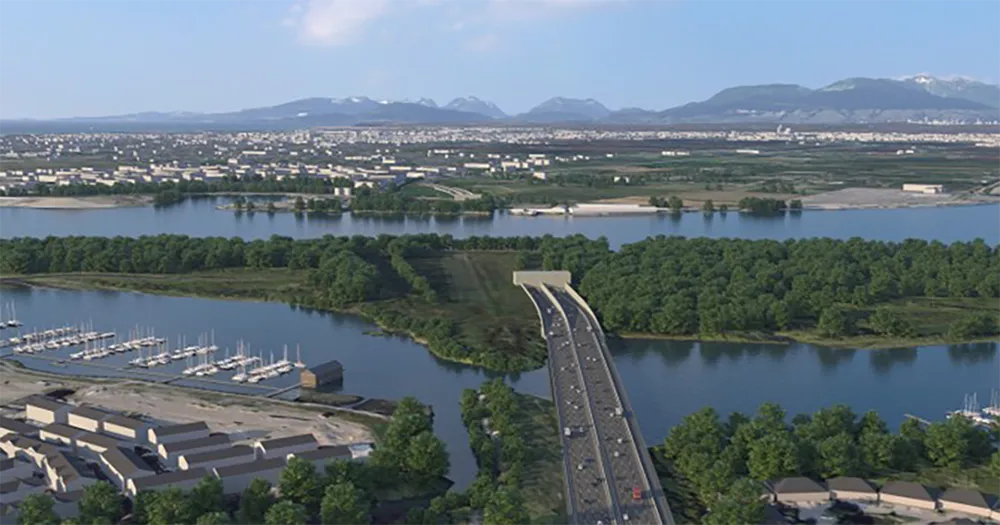The Danish government has given its approval for the construction of the 18km immersed tube Fehmarnbelt Tunnel, which will connect the country with Germany.
February 21, 2012
Read time: 2 mins

The Danish government has given its approval for the construction of the 18km immersed tube Fehmarnbelt Tunnel, which will connect the country with Germany.
6801 Ramboll, in partnership with 1419 Arup and 1421 TEC, developed the detailed concept that has now won the go-ahead. The work was in cooperation with 1422 Wilkinson Eyre Architects, UK; 2890 SCHØNHERR, Denmark; 1425 WTM Engineers International, Germany; 1426 Oriental Consultants, Japan, 1427 TNO Defence, Security and Safety, The Netherlands; and 2893 HTG Ingenieurburo fur Bauwesen, Germany.
The original plans were for a road and rail bridge, but these have now been rejected on the basis that a tunnel is more environmentally friendly.
Scheduled to open for traffic in 2020, the tunnel link between the Danish island of Lollond and the German island of Fermarn is expected to cost €5.1 billion to build, with the majority of the work being paid for by the Danish government.
A four-lane motorway and two-track rail link will speed passengers through the tunnel in an estimated 7-10 minutes, as compared with the 45-minute ferry crossing available now.
Interest is likely to be strong among construction companies and contractors wanting to bid for portions of this massive project.
German construction company Johann-Bunte has revealed that it has already signed a joint venture agreement with a number of international partners to bid for the construction of the link. Other major industry players are expected to reveal their intentions in bidding for the project shortly.
Because of new safety legislation in Europe imposed following disastrous tunnel fires in Austria and Switzerland that led to major fatalities, this new project will also be equipped with the latest safety systems and technology.
Proposals have also been put forward for a new bridge in Denmark to connect the islands of Als and Funen at an estimated cost of some €2.68 billion.
Its construction has been suggested by1434 Danfoss, the specialist manufacturer of hydraulic systems, which is a major industry in Denmark.
Should the bridge go ahead it would be financed partly by being a tolled link under the proposed scheme. Backers for the plan have yet to be found however and the plans remain at an early stage.
The original plans were for a road and rail bridge, but these have now been rejected on the basis that a tunnel is more environmentally friendly.
Scheduled to open for traffic in 2020, the tunnel link between the Danish island of Lollond and the German island of Fermarn is expected to cost €5.1 billion to build, with the majority of the work being paid for by the Danish government.
A four-lane motorway and two-track rail link will speed passengers through the tunnel in an estimated 7-10 minutes, as compared with the 45-minute ferry crossing available now.
Interest is likely to be strong among construction companies and contractors wanting to bid for portions of this massive project.
German construction company Johann-Bunte has revealed that it has already signed a joint venture agreement with a number of international partners to bid for the construction of the link. Other major industry players are expected to reveal their intentions in bidding for the project shortly.
Because of new safety legislation in Europe imposed following disastrous tunnel fires in Austria and Switzerland that led to major fatalities, this new project will also be equipped with the latest safety systems and technology.
Proposals have also been put forward for a new bridge in Denmark to connect the islands of Als and Funen at an estimated cost of some €2.68 billion.
Its construction has been suggested by
Should the bridge go ahead it would be financed partly by being a tolled link under the proposed scheme. Backers for the plan have yet to be found however and the plans remain at an early stage.








